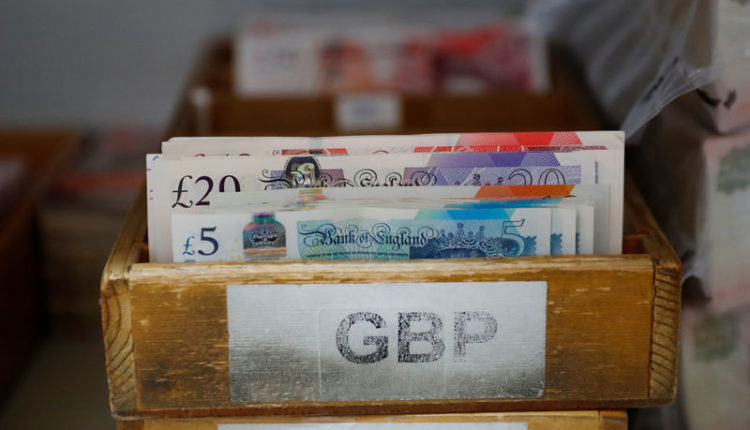Markets underestimate risk of sterling Brexit volatility: BlackRock
LONDON (Reuters) – Currency markets are underestimating the chance of big Brexit-related swings in the value of sterling over the next 12 months, BlackRock (NYSE:BLK), the world’s biggest asset manager, warned on Tuesday.
Risks had risen in recent months of an “extreme” Brexit outcome – either Britain leaving the European Union without a deal, or deciding to stay in the bloc, BlackRock portfolio manager Rupert Harrison said at a mid-year investment update.
“It’s even more uncertain than it has been at any point in the process,” Harrison said. “You can imagine a very, very wide range of outcomes in the next 12 months, and currently the options markets in currencies are not reflecting the scale of that potential volatility.”
Britain is due to leave the EU on Oct. 31, but parliament has repeatedly rejected the transition arrangements negotiated by outgoing Prime Minister Theresa May, and the two contenders to succeed her have both said they could leave without a deal.
Sterling slid to a six-month low against the U.S. dollar on Tuesday below $1.2440, but a measure of market volatility of sterling over the next 12 months remains well below the post-2016 peak it reached in December 2018.
Harrison, who advised former finance minister George Osborne from 2006 to 2015, said Brexit continued to reduce the attraction of British assets for global investors.
“The cumulative impact of the uncertainty, as well as … all the stocking and destocking that we’ve seen, has definitely had a negative impact on momentum, which has become significantly more negative over the last three months or so,” he said.
Official data due on Wednesday is likely to show economic growth slowed to 0.1% in the three months to May, according to a Reuters poll of economists. This is down from 0.5% recorded in the first quarter of the year, when demand was boosted by stockpiling ahead of the original March 29 Brexit date.

